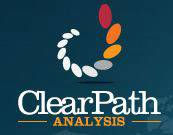Amid the uncertain economic environment and volatile markets, the rationale to explore risk-centred investment options is paramount, forcing many pension scheme providers to explore new and improved upon investment strategies that focus on de-risking. options is paramount, forcing many pension scheme providers to explore new and improved upon investment strategies that focus on de-risking.
The changing environment includes a dramatic fall in the active membership of private DB pension schemes (recent ONS data reveals that numbers across the private sector workforce dropped to 9% from 34% in 1997), while 75% of providers are actively looking at moving their plan strategies towards one centred around taking risk off the table while still meeting long term liability projections.
The Clear Path Analysis report, Pension De-Risking Investment Strategies Europe, has assessed the broad range of de-risking strategies now on the market, from long/short equity and liability-driven investing to new approaches such as absolute return funds and tail risk management.
Andrew Dickson, Investment Director - UK Institutional Business at Standard Life Investments, opens the debate by putting the issue in context:
“We have seen unprecedented amounts of volatility which has impacted traditional asset classes. Last year in August we saw one of the largest monthly declines in equities over the last 50 years, and in October the third largest gain; so clearly evidence of extreme volatility.
There has been increased interest in absolute return funds in both DB and DC pension schemes because of market conditions and an uncertain economic backdrop looking at where future returns will come from. Absolute return funds have a much broader universe of return opportunities.”
Shiblee Alam, CAIA, Director of AXA Funds of Hedge Funds at AXA Investment Managers, echoes this sentiment and offers a different approach:
“A systemic event does not unfold as an orderly cascade of dominos. It is like someone kicking the table on which the dominos rest. The 2008 meltdown reminds us that such extreme economic events happen more often than is generally perceived. For many investors, explicitly integrating tail hedge programmes as part of their asset allocation strategy will be a key factor in delivering stable and positive returns in the long term.
Correctly implemented, active tail risk hedging, through investment in a diversified portfolio of highly-specialised managers, may also extract alpha – not only by offsetting losses that result from market crashes, but by also enabling the overall portfolio to remain balanced throughout, and beyond, the crises.”
Additional strategies highlighted by commentators include a contribution from Julian Lyne, Head of Global Consultants & UK Institutional at F&C Investments who talks about LDI strategy:
“Our approach to LDI, or the ‘matching portfolio’ is that it is about de-risking. It is put in place to give protection for the plan and provide confidence to trustees that the assets are being run appropriately without any underperformance surprises. But this does not mean it cannot be implemented intelligently.
Timing is key to the purchase of the hedge, selecting the right instruments is paramount and proactively switching between assets when opportunities arise to ensure you’re always in the ‘right’ instrument, is fundamental.”
Meanwhile Mark Barker, Co-Chief Investment Officer at Hermes BPK Partners, comments on the long/short equity investing approach:
“Institutional investors looking to de-risk their portfolio today are faced with a pretty unpalatable set of choices. The traditional de-risking route has been to shift assets from equities to bonds to reduce beta to risky assets and to introduce a return stream that is independent of market direction. However, this has become less attractive with bond yields at historic lows.
Long/short equity investing centres on buying and shorting equities in order to reduce equity beta and to produce a return stream of alpha by capturing the spread, between outperforming and underperforming equities. We believe that this is becoming a significantly more attractive de-risking strategy in the current environment.”
Finally, Susanne Willumsen, Director, Portfolio Manager at Lazard Asset Management, considers the merits of low volatility equity strategies:
“More and more pensions and their advisors are in a de-risking mood when DB schemes are closing and they can’t afford to expect equity markets to bail them out.
The equity market itself has been cheap after what has been happening in the global markets over the last few years. Low volatility stocks are trading at a discount to what they have historically been. Therefore, it makes sense to lower volatility and focus on total returns, rather than benchmark relative returns.”
|

